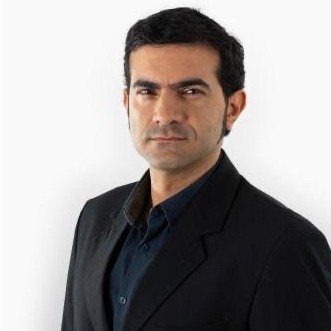Elizabeth Blackburn's Email & Phone Number
Australian-American biochemist
Elizabeth Blackburn's Email Addresses
Elizabeth Blackburn's Phone Numbers
Find personal and work emails for over 300M professionals
Not the Elizabeth Blackburn you were looking for? Continue your search below:About Elizabeth Blackburn
📖 Summary
Elizabeth Blackburn is an Australian-American biochemist renowned for her groundbreaking research in the field of genetics and molecular biology. Born in Hobart, Tasmania in 1948, Blackburn’s passion for science was evident from a young age. She went on to study biochemistry at the University of Melbourne, where she earned her Bachelor of Science degree in 1970. Following this, Blackburn pursued her PhD in molecular biology at the University of Cambridge, graduating in 1975.
Blackburn’s illustrious career took off when she joined the faculty at the University of California, Berkeley, where she began her pioneering research on telomeres, the protective caps at the end of chromosomes. Her work on telomeres has had far-reaching implications for aging, cancer, and stem cell research. In 2009, Blackburn was awarded the Nobel Prize in Physiology or Medicine, along with her colleagues Jack W. Szostak and Carol W. Greider, for their discoveries in the field of telomere biology.
One of the most significant contributions of Blackburn’s research is the discovery of telomerase, an enzyme that plays a crucial role in maintaining the length of telomeres. This discovery has opened up new possibilities for understanding and potentially treating age-related diseases, such as cancer and cardiovascular disease. Blackburn’s work has not only transformed our understanding of genetics and molecular biology but has also paved the way for the development of new therapies and interventions for a myriad of medical conditions.
In addition to her groundbreaking research, Blackburn is also a passionate advocate for the advancement of women in science. She has been a vocal proponent of gender equality in the field of STEM and has dedicated much of her career to mentoring and supporting the next generation of female scientists. Blackburn has received numerous awards and honors for her contributions to science and advocacy, including being named one of Time magazine’s 100 Most Influential People in the World in 2007.
In her role as the President of the Salk Institute for Biological Studies in La Jolla, California, Blackburn has continued to be a leading voice in the scientific community, championing the importance of basic research and the need for continued funding and support for scientific endeavors. Her work has not only advanced our understanding of the fundamental processes of life but has also inspired countless researchers and scientists to pursue new avenues of inquiry and discovery.
Overall, Elizabeth Blackburn’s impact on the field of biochemistry and molecular biology is immeasurable. Her pioneering research on telomeres and telomerase has revolutionized our understanding of aging and disease, while her advocacy for gender equality in science has created opportunities for countless women in STEM. As a Nobel laureate and esteemed scientist, Blackburn’s legacy continues to shape the future of scientific inquiry and inspire a new generation of researchers.
Frequently Asked Questions about Elizabeth Blackburn
What was Elizabeth Blackburn famous for?
Elizabeth Blackburn, PhD, won the Nobel Prize in Physiology or Medicine in 2009 for discovering the molecular nature of telomeres, the ends of chromosomes that serve as protective caps essential for preserving genetic information, and for co-discovering telomerase, an enzyme that maintains telomere ends.
What is Elizabeth Blackburn doing now?
In 1990, she joined the Department of Microbiology and Immunology at UC San Francisco, where she served as Department Chair from 1993 to 1999. Blackburn is currently a faculty member in Department of Biochemistry and Biophysics at UCSF. She is also a Non-Resident Fellow of the Salk Institute.
Who won the Nobel Prize for telomeres and aging?
Elizabeth H Blackburn, Carol W Greider and Jack W Szostak were acknowledged with this year's Nobel Prize in Physiology or Medicine for their discoveries on how chromosomes are protected by telomeres and the enzyme telomerase.Mar 18, 2010
Elizabeth Blackburn's Email Addresses
Elizabeth Blackburn's Phone Numbers
People you may be
interested in
American actress
American singer
Indonesian actress
American actress
American actress and film producer
American actress and singer
TV personality
American musician
American basketball power forward
Musical artist

Sales Manager, Relationship Manager , Marketer , Sr.Risk & Unti-Fraud ,CIB

Apresentador e repórter na Rádio Gaúcha e colunista em GaúchaZH na Grupo RBS








